The origin of Friday the 13th and its association with irrational fear and negative superstitions can be traced back to several historical, cultural, and religious factors. Additionally, pop culture played quite a significant role in the superstition surrounding the most feared date in the Gregorian calendar year.
The question is, why did it actually become associated with negative superstition? Which stories are at the basis of one of the most widespread superstitions in the world?
Table of Contents
The Origin of Friday the 13: What is the Real Story of Friday the 13th?
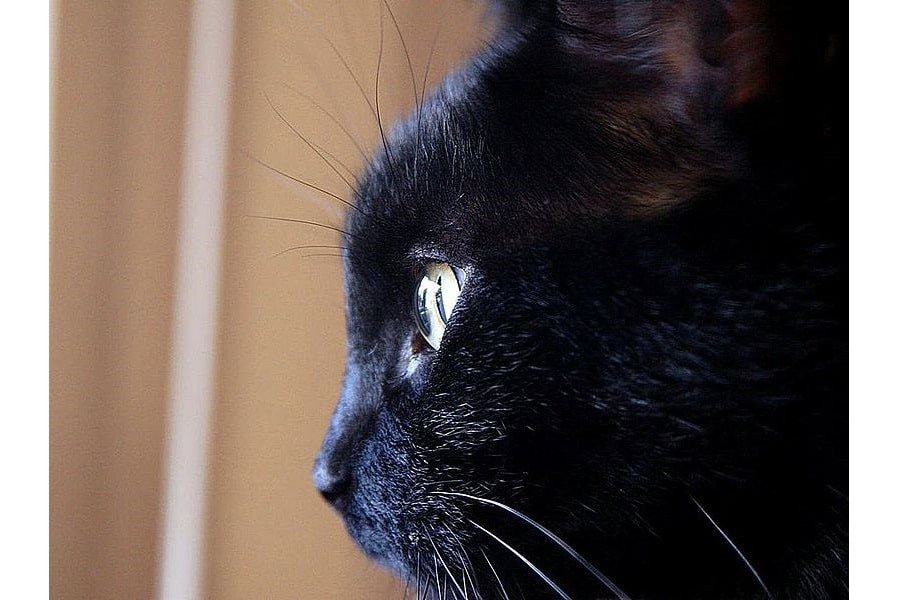
The truth remains murky about the real origin of Friday the 13th. Generally, there are four different theories about the origin of the unlucky day. Firstly, some believe that the story of the last supper in the Biblical tradition might’ve something to do with it. Others say that the tradition began thanks to Norse and Germanic tribes. It’s also very well possible that the arrest of the Templar Knights initiated it, or that it’s just a result of pop culture.
It’s important to recognize that the superstition surrounding Friday the 13th is subjective and varies across cultures. While some people may genuinely believe in its negative connotations, others view it as a mere curiosity or even a source of amusement. This latter view is especially at the basis of the whole media circus surrounding Friday the 13th.
Christian Tradition

One potential reason for the negative connotations of Friday the 13th is rooted in Biblical tradition. The number 13 is considered unlucky in the Bible due to different stories. For one, it is believed that on this particular day, Eve gave Adam the forbidden fruit which eventually led to the supposed fall of mankind.
However, the more prominent theory linking the superstition surrounding Friday the 13th to Christianity has to do with the Last Supper. According to the New Testament, the Last Supper was a significant event in the Christian tradition.
Jesus’ Crucifixion and Last Supper
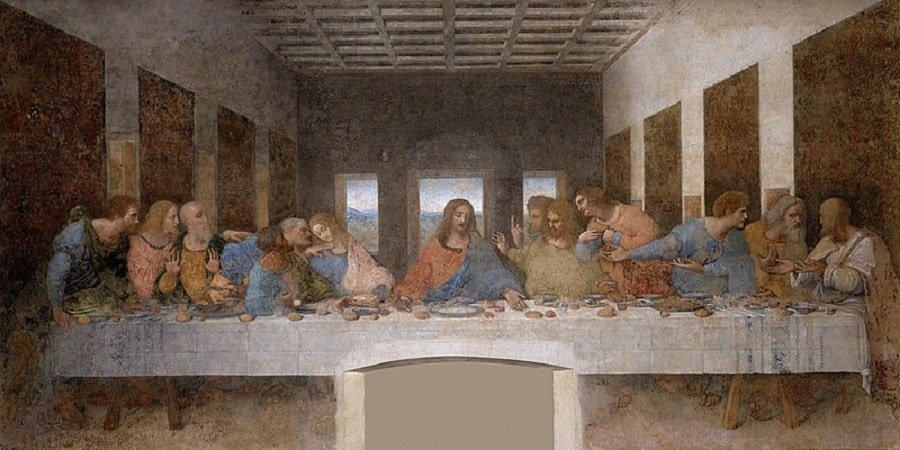
Jesus Christ and his twelve apostles sat down for a meal before Jesus’ crucifixion on what we now know as ‘Good Friday’. The theory that links the legend of the last supper to the day of bad luck has to do with the number of people present: thirteen guests attended in total.
The theory suggests that the number 13 became stigmatized due to its association with the betrayal of Jesus by one of his apostles; Judas Iscariot. Judas was the 13th person to take his place at the table, and he subsequently betrayed Jesus. The betrayal of Judas led to his arrest and eventual crucifixion.
Because Judas was believed to be the thirteenth guest at the table, the association between bad luck and the number thirteen became an actual thing in the Christian tradition. Over time, the superstition surrounding Friday the 13th gained traction and became ingrained in Western culture.
Norse Mythology

A second theory for the superstition surrounding Friday the 13th relates to stories from Norse mythology. In the mythological tradition, the number 13 holds a significant place of unease and misfortune.
The link between Norse mythology and the superstitions surrounding the cultural phenomenon can be boiled down to a prominent trickster god in Scandinavian folklore. The infamous god Loki, who appeared in many legends and had quite a bad and unlucky reputation, is believed to be responsible for the bad luck on Friday the 13th.
According to Norse legends involving the trickster god, a great banquet was held in the grand hall of the Norse gods called Valhalla. Twelve gods were invited to the feast, and Loki was (probably consciously) excluded from the guest list.
In his anger and resentment, Loki decided to show up to the feast anyway and orchestrated the murder of Baldr; the god of light and joy. So, Loki started to create chaos and initiated traumatic events as soon as he arrived.
The Killing of Baldr Caused by the 13th Guest
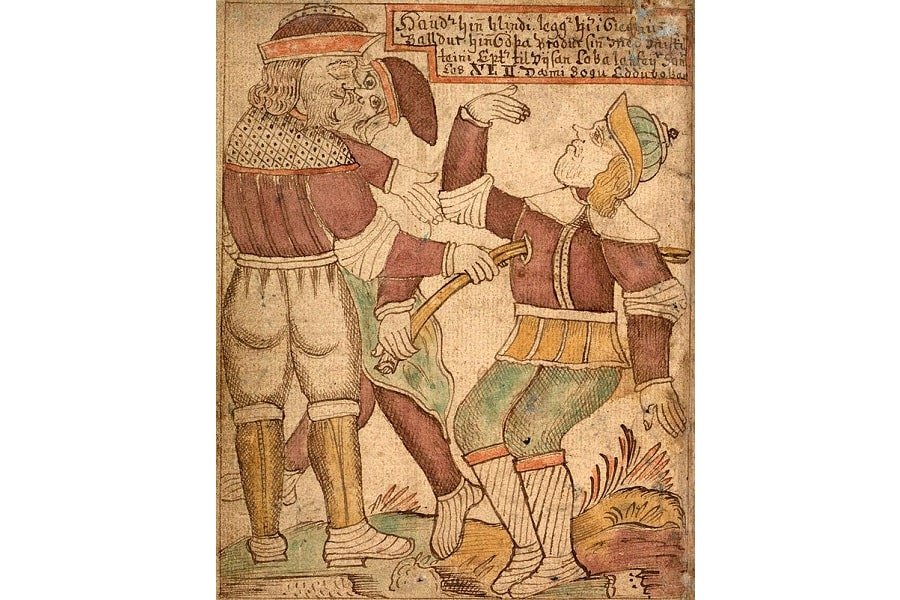
The killing of Baldr led to great sorrow and tragedy. Loki was the 13th person present at the feast, albeit uninvited. Since the 13th god initiated all the chaos and betrayal, it is likely that Nordic and Germanic tribes began seeing negative connotations associated with the number.
As Norse mythology spread and evolved, the fear and suspicion surrounding the number 13 became ingrained in the collective consciousness of the Scandinavian people. The spread of the myth beyond the Scandinavian realm was mainly due to the Vikings and their explorations and conquests.
The meaning and fear of the number 13 spread to other countries, influencing many of the perceptions in Western cultures. Still, if the story is based only on the legend of Loki, there is no real reason why the number 13 should be linked to Friday.
It is very well possible that this connection can be traced back to the Christian tradition. While at first, the Vikings had been polytheistic (believing in many different gods), eventually the Germanic tribes converted to Christianity.
Because of this increased conversion, the story of Loki likely became intertwined with the already existing stories from Christian traditions.
Templar Knights’ Arrest
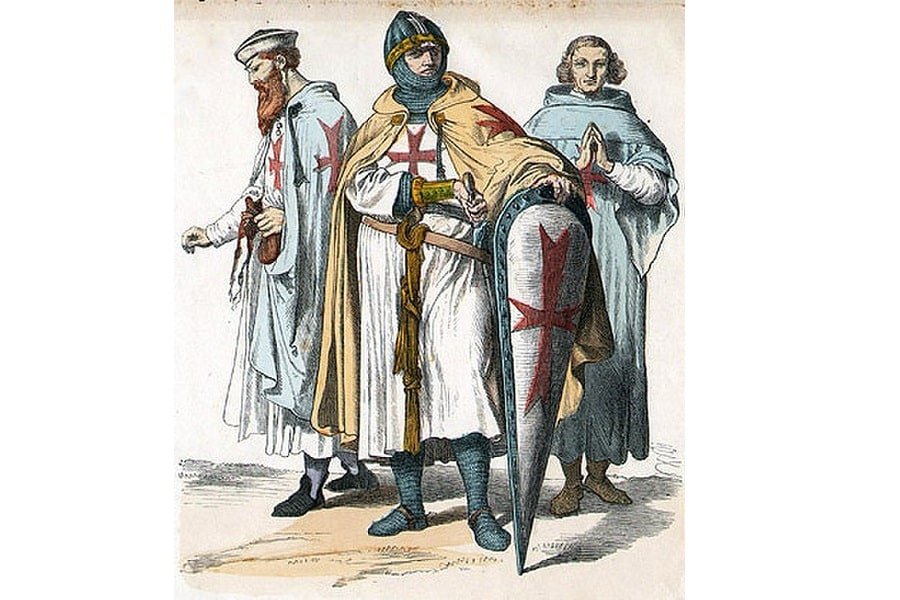
Another theory connects the superstitions surrounding Friday the 13th to the arrest of the Templar Knights. On Friday, October 13th, 1307, King Philip IV of France ordered the simultaneous arrest of an exclusive society called the Templar Knights – a powerful and wealthy medieval Christian military order.
The Templar Knights were renowned for their military prowess and financial influence. However, their growing power became a concern for King Philip IV, who sought to gain control over the group of knights. The king of the middle ages wanted access to their financial resources so that he could inhibit them from gaining any more power.
What Happened to the Knights Templar on Friday the 13th?
Hence, the Templar Knights were accused of various illegal behaviors on Friday the 13th, 1307, including heresy, blasphemy, and corruption. King Philip IV sought to eliminate his debts to the Templars and seize their assets. The arrests were swift and caught the Templars off guard. Following their arrests, the Templars underwent interrogation and torture, with the intention of extracting confessions and evidence against them.
The events of Friday the 13th, 1307, marked a turning point for the Knights Templar. It led to their downfall as a powerful military order and the subsequent dissolution of their order by the Church. All and all, King Philip reached his goal and didn’t have to take the Templar Knights into account any longer.
The Templar order was eventually disbanded, and many of its members faced torture, imprisonment, and execution. The sudden downfall of this influential group, coupled with the events occurring on a Friday the 13th, led some to associate the date with ill fortune. Over time, this association became ingrained in popular culture, and superstition spread.
Perpetuation Through Pop Culture
While Friday the 13th is a bad omen in and of itself, many other bad omens have been associated with the notorious day such as crossing paths with a black cat or walking under a ladder. In one way or another, these signs relate to Friday the 13th and contribute to the negative perception of the day.
The link between all these negative superstitions was promoted through the media. While the origin of the Friday the 13th superstition is rooted in various historical and cultural factors, it was the creative works of writers and filmmakers that brought the concept to a wider audience and cemented its place in popular consciousness.
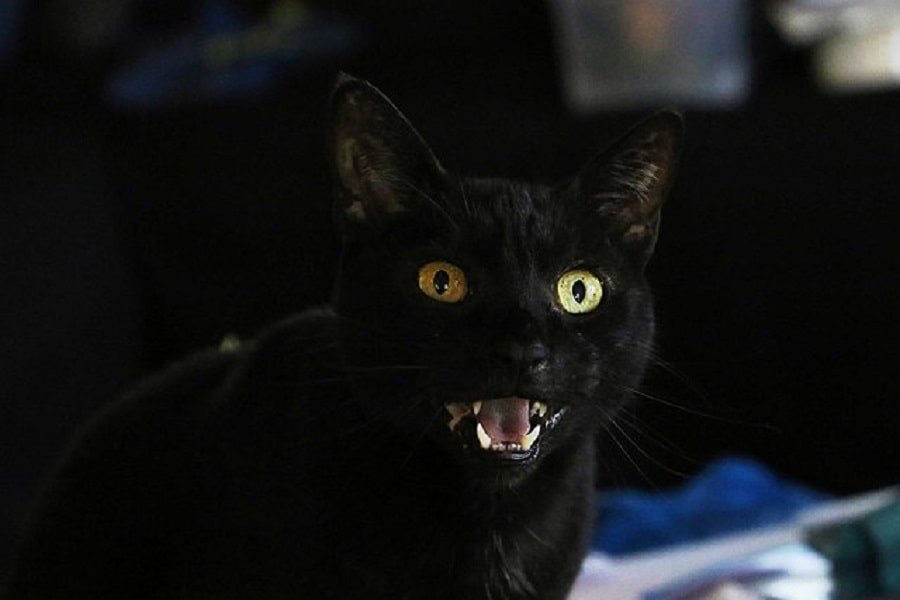
Notable Works
One notable literary work that contributed to the popularization of superstition is Thomas W. Lawson’s novel, called ‘Friday, the Thirteenth’, published in 1907. The story revolves around the financial world and a Wall Street stock market crash that occurs on Friday the 13th.
However, there are also many other movies such as those from the ‘Friday the 13th’ horror film franchise. The series features the infamous hockey mask-wearing killer Jason Voorhees, who eventually became a cultural phenomenon.
Beyond these specific examples, numerous other works of literature, films, and television shows have embraced the superstitions surrounding Friday the 13th. Oftentimes it is used as a narrative device to build tension and create a sense of foreboding.
This continued portrayal of Friday the 13th in popular media has contributed to the widespread acceptance of the superstition, with many people anticipating and even fearing the arrival of this particular date.
Why is Friday the 13th Unlucky?
At the end of the day, the unlucky nature of the notorious day has to do with the troubling recurrence of the number 13 in religion and folklore from medieval Europe. All religious significance, mythology, the arrest of the Knights Templar, and the perpetuation of the legend through film and other media have influenced the association of Friday the 13th with a lack of luck.
What Else Has Happened on Friday the 13th?
Many different traumatic events occurred on Friday the 13th, including the German bombing of Buckingham Palace, the disappearance of a Chilean Air Force plane in the Andes, the death of rapper Tupac Shakur and, most recently, the crash of the Costa Concordia cruise ship off the coast of Italy, which killed 30 people.